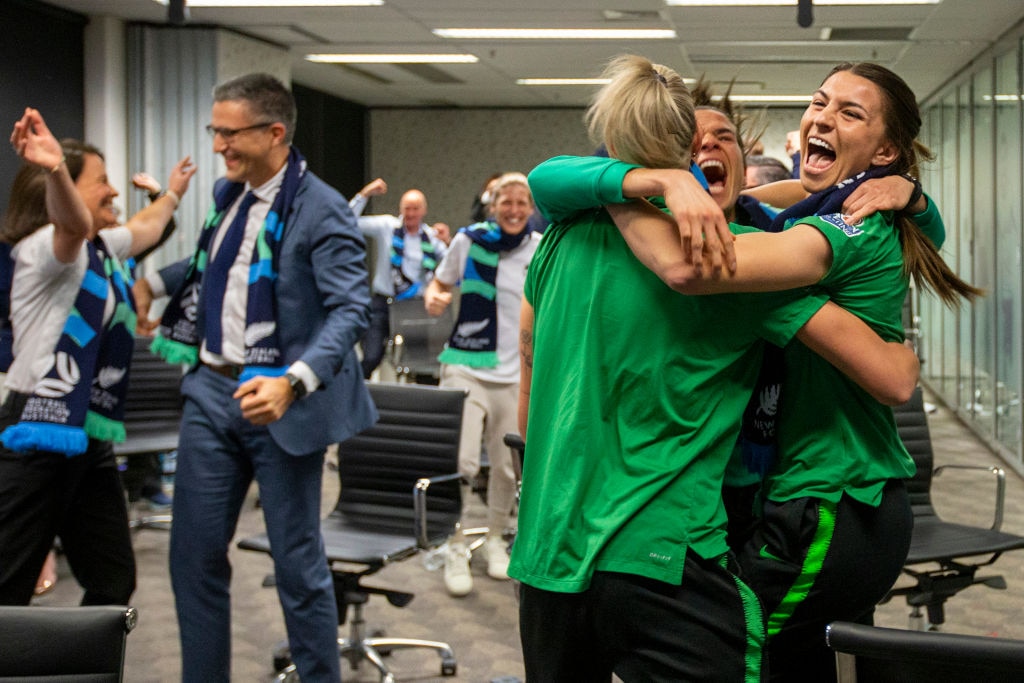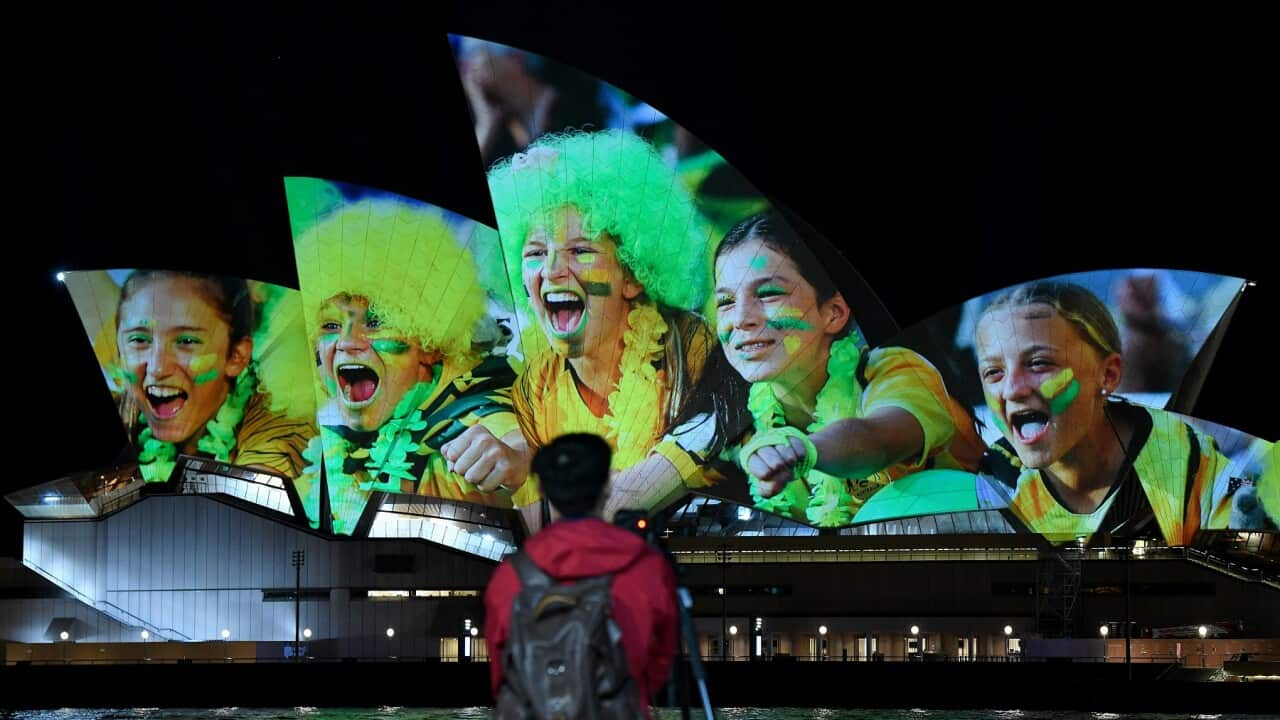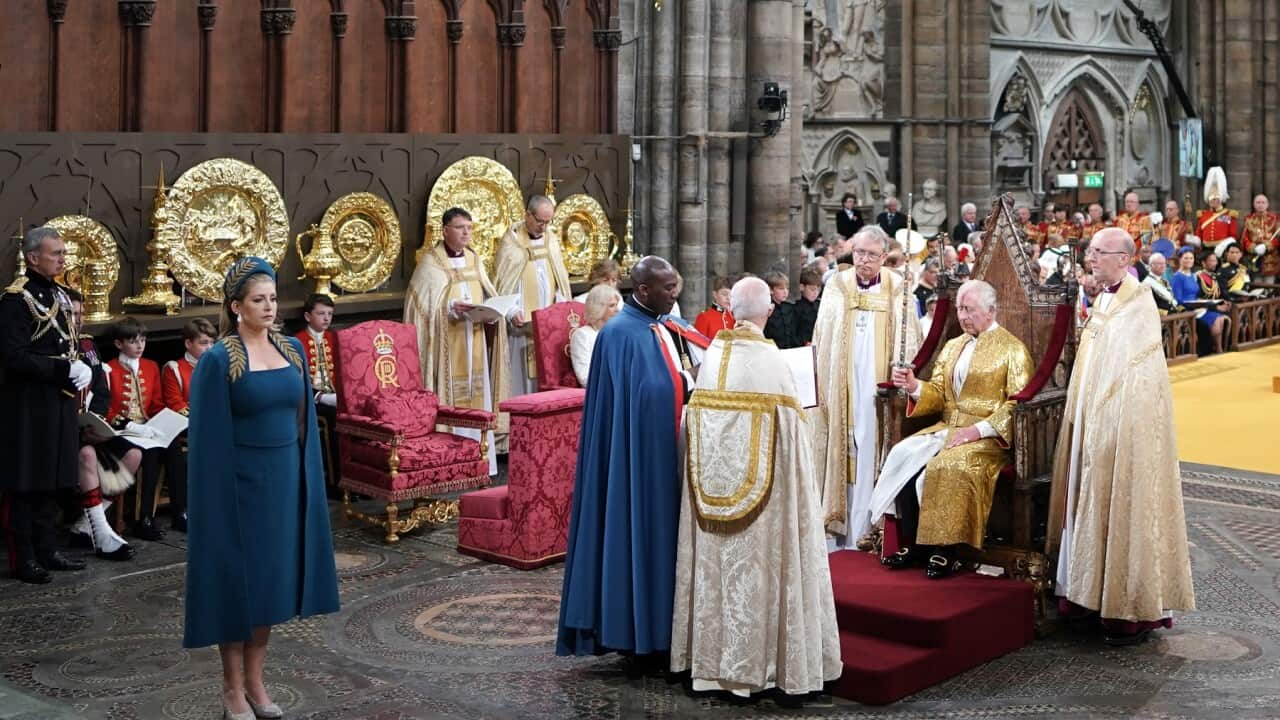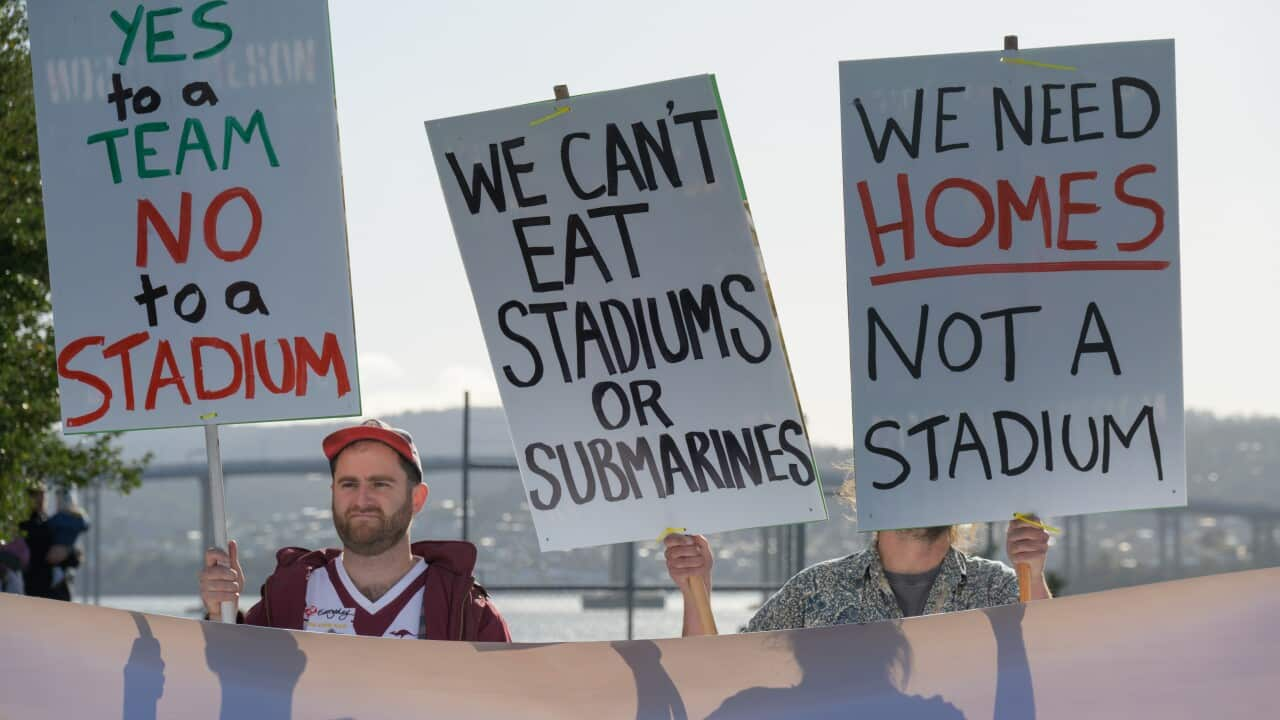In the early hours of the morning, we learned Australia and New Zealand won their historic joint bid to host the FIFA 2023 Women’s World Cup.
It’s the first time two nations from different football confederations (Asia and Oceania) will co-host a World Cup. And it’s an especially sweet victory for Australia after its expensive failed bid for the 2022 men’s World Cup, which resulted in just one vote. No doubt the smile on Matildas star Sam Kerr’s face extends from ear to ear.
In an increasingly fractious world, the symbolism of Australia and New Zealand’s “As One” bid collaboration ought not be dismissed. Both countries have experience with this kind of partnership, having successfully co-hosted the 2015 Cricket World Cup and 2017 Rugby League World Cup.

Australian soccer players Steph Catley, Alanna Kennedy and Lydia Williams celebrate as FIFA announces Australia as the hosts of the 2023 Women's World Cup.
Getty




